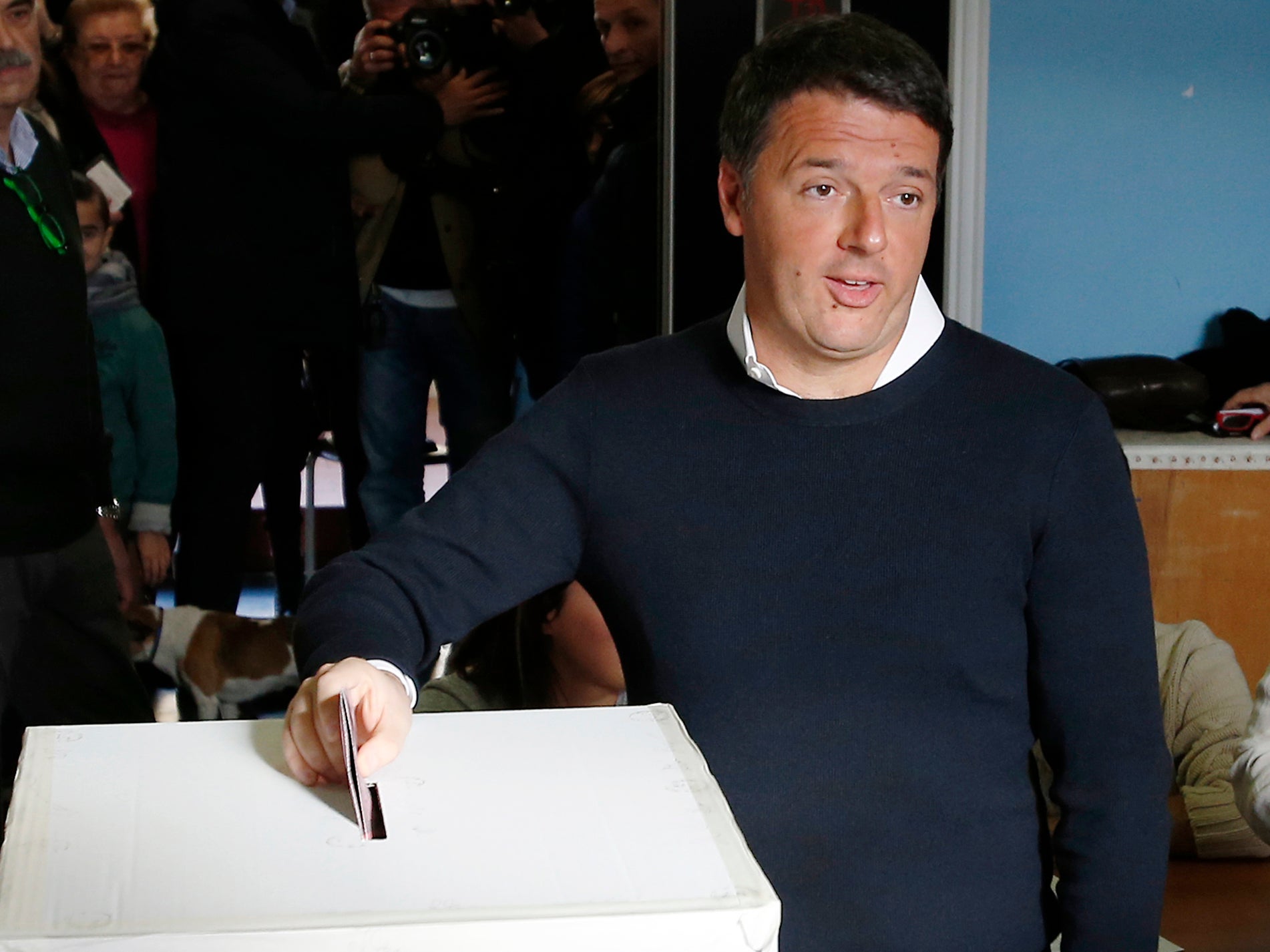Italy goes to the polls in critical referendum that could destabilise Europe
Vote risks plunging Italian economy and euro zone into fresh crisis
Italians have begun voting in a referendum heralded as the jucture when the fate of Prime Minister Matteo Renzi – and some say of Europe – will be decided.
The vote is being watched worldwide for signs of escalating anti-establishment sentiment, following a surge of support for populist parties that has forcibly rocked America and the UK during 2016.
Mr Renzi has promised to resign if he loses, triggering political instability and risking plunging the Italy’s already struggling economy into a fresh crisis, which could cause further turmoil in the eurozone.
The Prime Minister proposes streamlining Italy’s government – long considered gridlocked with bureaucracy – including slashing the size of the senate from 315 members to 100.
The centre-left politician argues this will accelerate the lawmaking process in Italy, which currently has 60 governments, but opponents say this will hand too much power to the prime minister.
Polls opened at 7am, with about 51 million Italians eligible to vote on Mr Renzi's plan to drastically reduce the role of the upper house Senate and claw back powers from regional authorities.
The Italian leader made not comment as he voted in Pontassieve, a Tuscan town east of Florence, along with his wife, Agnese Landini. He is expected to return to Rome later this afternoon to watch the outcome of the vote.
With all the opposition parties lined up against the reform, a victory for Mr Renzi would be a surprise and represent an enormous personal triumph for Italy's youngest prime minister who often appeared to be fighting the campaign single-handed.
All surveys published in the month before a blackout was imposed on 18 November put the 'No' camp ahead.
Private polls have continued to be conducted in the last two weeks and bookmakers say 'No' remains the clear favourite to win.
However, in the final days of frenetic campaigning Mr Renzi insisted the public mood was changing, focusing his attention on the millions of Italians who said they were undecided.
Pippo Nicosia, a stall-holder at Campo dei Fiori market in central Rome, said he would vote 'Yes' but had no doubt about the result. “'No' will win, everything will collapse so we might as well all go on holiday,” he said.
Turnout, expected at between 50 and 60 percent, could be crucial. Pollsters say lower participation could favour Renzi, as hostility to his reform is strongest among young voters and those in the poor south, segments of the population that often don't bother to vote.
A turnout above 60 percent could also make the result more unpredictable, as it would suggest many voters who said they planned to abstain ended up going to the polls.
With bookmakers' odds suggesting a roughly 75 per cent chance of a win for 'No', speculation is rife on what Renzi will do in the event of defeat.

He is widely expected to resign and has said he will play no role in any unelected, “technical” government, which President Sergio Mattarella may try to put in place. Some of his allies have urged him to stay in power regardless of the result.
The result of exit polls will be announced as soon as voting ends and the count begins at 11pm.
After around 30 minutes, the first projections of the result will be announced on the basis of actual votes counted.
If the result is not close, the winner could be clear after the second projection, sometime between midnight and 1am.
In a very close race, the winner may not be known until the count is completed, probably between 2 and 3am.
Economy Minister Pier Carlo Padoan sought to calm nervous markets on Friday, saying there was “no risk of a financial earthquake” if 'No' wins, though there may be “48 hours of turbulence”.
Market jitters have concentrated on Italy's banks, saddled with €360bn euros (£300bn) of bad loans, and most specifically on Monte Dei Paschi di Siena, its oldest and third largest lender.
The bank needs to raise 5 billion euros (£420bn) by the end of the year to plug a capital shortfall or risk being wound down. Government officials say potential investors may be deterred by political instability if 'No' should win.
Reuters
Join our commenting forum
Join thought-provoking conversations, follow other Independent readers and see their replies
Comments
Bookmark popover
Removed from bookmarks